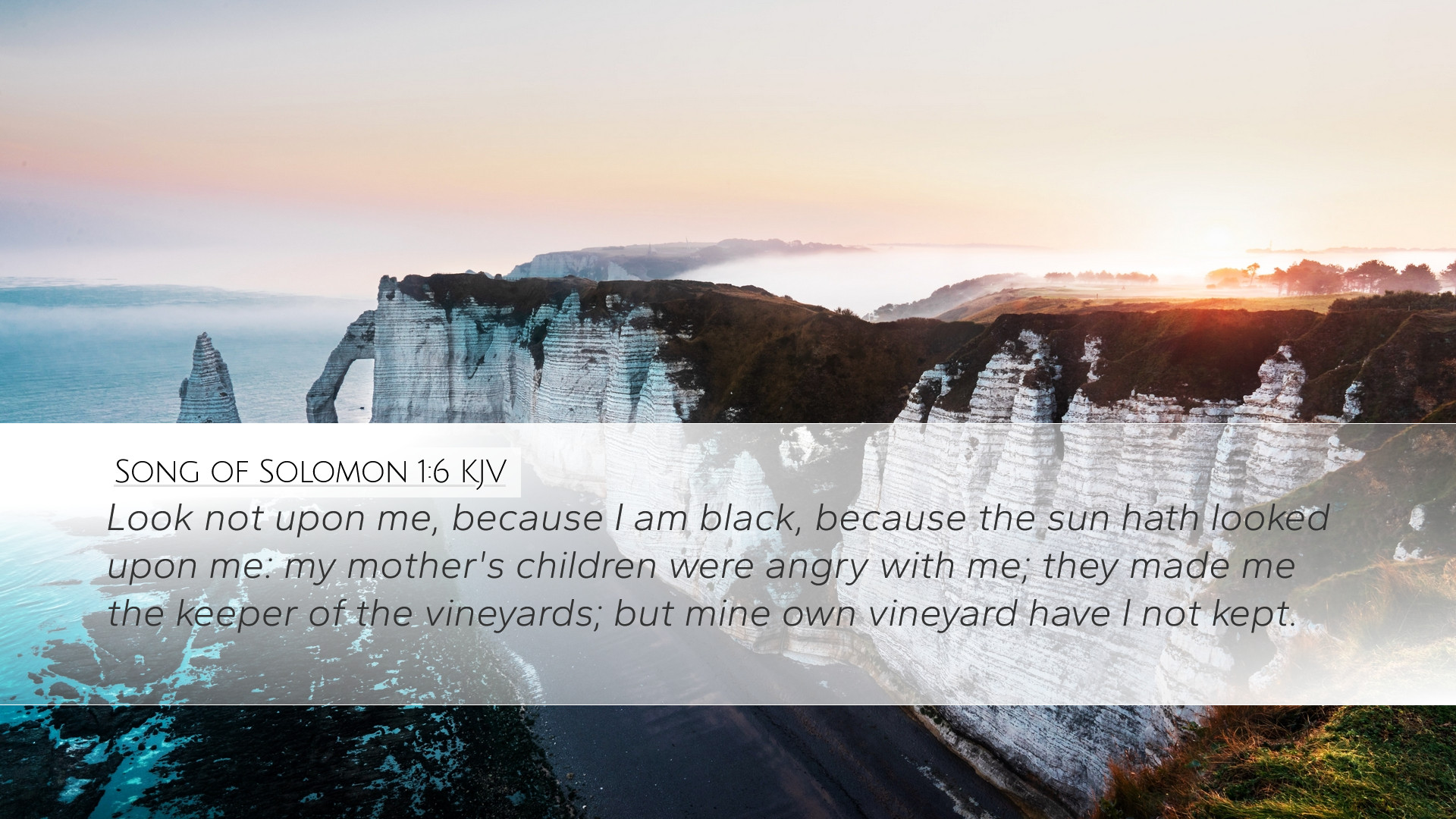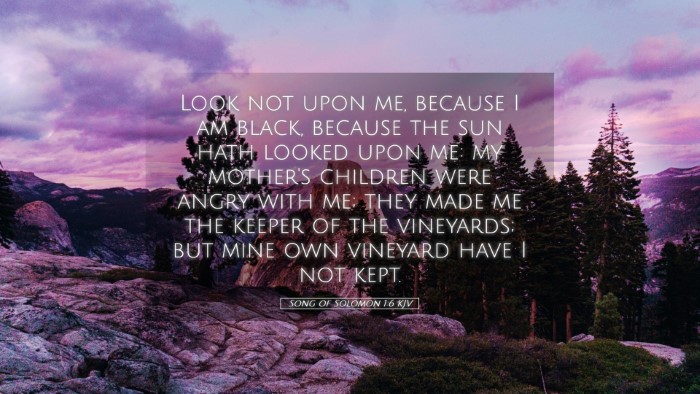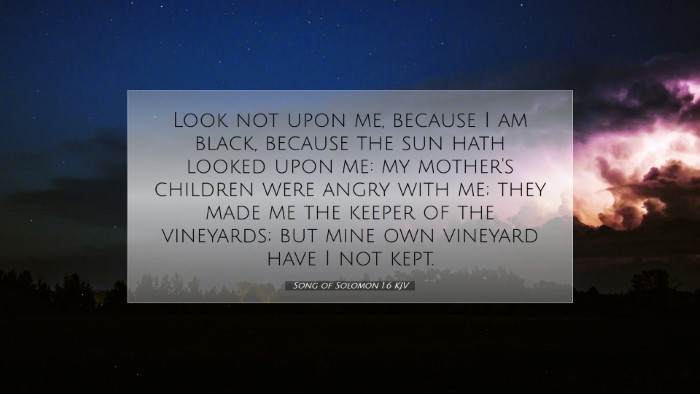Commentary on Song of Solomon 1:6
The verse Song of Solomon 1:6 states:
"Look not upon me because I am black, because the sun hath looked upon me: my mother’s children were angry with me; they made me the keeper of the vineyards; but mine own vineyard have I not kept."
Contextual Overview
This verse forms part of the dialogue between the bride and the bridegroom in the Song of Solomon, a poetic expression of love found in the Old Testament. Here, the bride reveals her insecurities and the burdens that have overshadowed her self-esteem.
Thematic Insights
Character of the Bride
The bride's lament reveals her awareness of societal perceptions and personal struggles. According to Matthew Henry, she emphasizes her darkened skin as a result of labor in the sun, which was considered unattractive within her cultural context. However, this is not merely a physical description; it signifies her emotional distress and feeling of inadequacy.
Symbolism of Skin Tone
In her expression, the phrase “look not upon me because I am black” symbolizes her perception of worth and the judgment she anticipates from others. Albert Barnes elaborates that her reference to being black is not simply about physical appearance but reflects the burdens she feels from her responsibilities, particularly regarding her family dynamics.
Familial Relationships and Responsibilities
The bride's reference to “my mother’s children” and their anger signifies familial tensions and pressures. Adam Clarke comments that her siblings' discontent led her to assume roles that diverted her attention from her own needs - the keeping of vineyards representing the obligations placed upon her.
Spiritual Implications
Self-Perception and Divine Love
This verse invites profound reflection on how personal struggles can affect one’s self-image and relationship with God. As Matthew Henry notes, the theme suggests that in our imperfections and through our arduous labor, God sees beauty. The bride, though feeling unworthy, is in the presence of the bridegroom, representing Christ, who loves despite her fears.
The Keeper of the Vineyards
The metaphor of “keeping the vineyards” suggests stewardship and care, both of which are important in a spiritual sense. This aligns with biblical themes of cultivating one's heart and life in service to God. Albert Barnes points out that while she tended to others' vineyards, her own remained neglected, reflecting the need to balance self-care with service, a crucial aspect for believers.
Applications for Today
Addressing Insecurities
For pastors and theologians, this verse speaks to the necessity of addressing insecurities in congregants. Adam Clarke encourages leaders to understand that many struggle with their self-image due to past experiences and familial issues, echoing the bride's sentiments of rejection and underappreciation.
Encouragement towards Self-Care
This commentary prompts a need for pastoral care that emphasizes the importance of self-worth through the lens of divine love. The bride reminds believers that while service is vital, they must also cultivate their spiritual and emotional well-being. Matthew Henry posits that God’s love transforms how we perceive ourselves, encouraging faithful stewardship of both personal and communal responsibilities.
Conclusion
Song of Solomon 1:6 beautifully encapsulates the complexities of human emotion, familial obligation, and the pursuit of self-worth. Each of the commentaries contributes to a fuller understanding of the text, making it a profound reflection for anyone engaged in the study of Scripture. In recognizing the bride’s struggles, we also see the unyielding nature of love, grace, and acceptance offered by God.


